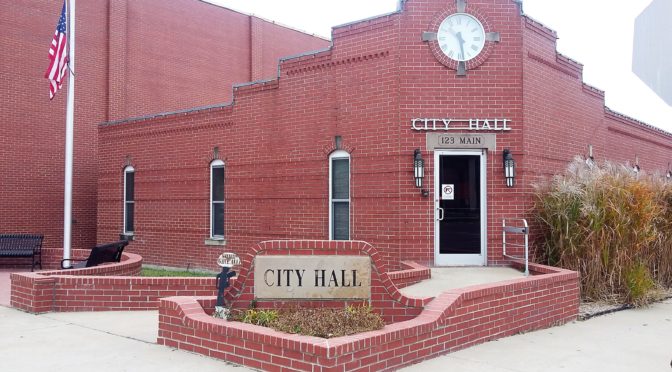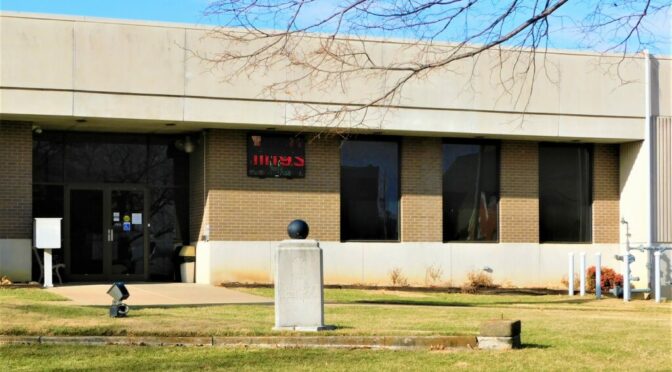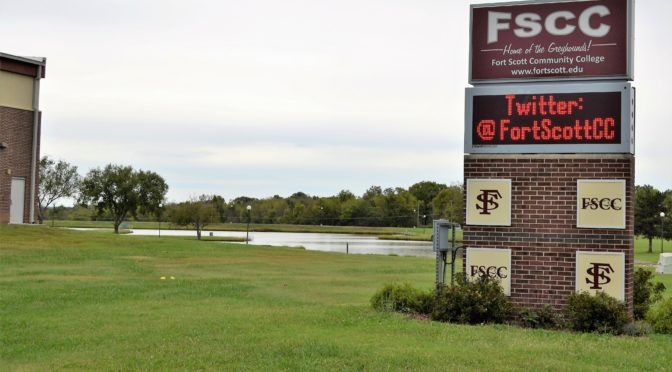March 9, 2021 Tuesday 9:00 am
The Bourbon County Commission met in open session with all three Commissioners, the County Counselor and the County Clerk present.
Also present were the following; (some were present for a portion of the meeting and some were present for the entire meeting) Jason Silvers with the Fort Scott Tribune, Susan Bancroft, Anne Dare, Mr. & Mrs. Clint Walker and Mark McCoy.
Clifton made a motion to approve the minutes from the prior two meetings, Jim seconded and all approved.
Road & Bridge supervisor Eric Bailey met with the Commissioners; the Commissioners signed a completed culvert permit for Kyle Brown.
Eric received an estimate for a project from Frank Young for $185,000 to install box culverts at a low water crossing at 250th & Deere Road; Jim said there had been a request from the property owner in this area to address this issue, Jim suggested that either he or Eric visit with the property owner and inform them that the County can’t do this work since it costs so much.
Eric presented the Commissioners with a report from Agricultural Engineering regarding the report of findings for the leak at Elm Creek Lake; Eric gave a copy of this to the Commissioners for their review.
Eric said they would be doing a blast at the Beth Quarry on 3/16/2021.
Eric discussed the rock crusher; he said springs had broken on the screen and it had been down for a day, but is now repaired and producing road rock. He said all of the dump trucks are in service and working well. He said they are doing roadside mowing in the north central part of the County.
Jim asked Eric if he was planning on replacing the Ford Tractor that was previously purchased from KDOT; Eric said R&R was going to see if it can be repaired.
Eric said they will be cleaning brush around a bridge near 130th & Xavier and 215th & Xavier. They will be putting rock down for the bridge at 260th & Indian Road.
Eric said the City needed asphalt for patching so the County has the asphalt plant running today.
Eric had a meeting with Jayhawk Wind; he said they presented the County with a road plan; he is reviewing this and will meet with Frank Young for Frank to review it as well. Justin said that February 26th started the 45 day window for them to have the money to the County.
Clifton made a motion that Jim and Eric meet with T&C regarding roads in their area, Lynne seconded and all approved.
Eric said that crossroad culverts near Garland had been added to the list.
Lynne discussed a bridge near 115th & Unity; he said this is an open road, Eric said they will get the debris cleaned out underneath the bridge.
Lynne reported that the road was muddy at 120th & Kansas Road (possibly from where the road was cut for a cable to be installed); Eric said they had recently rocked that road.
Jim told Eric that he had drove the roads last week and said the roads look good.
Matt & Taylor with SEKRPC met with the Commissioners; Matt said they have been working with the new meat packing company and with Ace Hardware. He said they had assisted with a project in Uniontown in 2020. SEKRPC received a CARES Act grant and Taylor will be getting out to the smaller communities to help work on smaller grants. Taylor gave the Commissioners documentation regarding a revolving loan fund and said there are still funds available. They announced a small business seminar on April 7th in Chanute.
Jim made a motion to advertise to take hay bids for Elm Creek Lake and the old Landfill site, Clifton seconded and all approved.
Clifton made a motion to take bids for the County health insurance for the 2022 year, Jim seconded and all approved. Bill Martin said quotes were provided in 2018 and Wallstreet Group had provided a quote that if accepted would have saved the County $130,000 (Bill handed the Commissioners the 2018 quote). Bill said when a wage study was done, employees were surveyed if wages or benefits were more important to them, he said the majority of employees said wages. Jim asked Bill if he thought that decision was made because they have never experienced bad health insurance. Susan Bancroft briefly discussed the City of Fort Scott’s health insurance; she said the County’s policy covers a lot more than the City’s; she suggested that the County research the brokers offering the policies and said insurance is not apples to apples.
Jim made a motion to allow Lynne to attend a tour with Fort Scott City Manager Jeremy Frazier of the proposed dispatch area in the old jail, Clifton seconded and all approved. Susan Bancroft said the City had approved moving the dispatch to the Courthouse.
Register of Deeds Lora Holdridge met with the Commissioners; Lynne said she had been looking at road maps from 1950 on to determine what roads are open or closed. Lora showed the Commissioners a 1983 reappraisal map that showed one road open and one road closed regarding two roads they have been questioning. Lora said there was a road closure in 2013 that was never put on record in her office, she questioned if the adopted resolution regarding this road could now be put of record, Justin said he would check with the State to verify this. Lora suggested that they have a road work session with she, Eric and at least one Commissioner, Lora said she would meet with Eric to review the maps. Lora said the 1983 reappraisal map lines up with the 911 map. Justin suggested that there are roads in the County that should be vacated and said the Commissioners should reach out to landowners to see if they would want their roads vacated.
Lynne said that Lora had taken on the responsibility of doing the road records, he said the Clerk and the Treasurer has an annual salary of $47,248.24 vs. the Register of Deeds salary of $44,821.66, he felt the Register of Deeds pay should be raised to be comparable to the Clerk & Treasurer. Jim made a motion to raise the Register of Deeds pay to $47,248.24, Clifton seconded and all approved.
Justin said the Commissioners needed to have a meeting regarding the Multi-County Health Board, Lynne made a motion for Clifton to be the liaison for the Bourbon County Commissioners to discuss the future plans for the Health Board, Lynne seconded and all approved.
Jim said he, Justin and a City of Fort Scott employee would be touring a meat packing plant in Springhill on Friday.
Clifton made a motion to go into a 15 minute executive session regarding KSA 75-4319(b)(2) for consultation with an attorney for the body or agency which would be deemed privileged in the attorney-client relationship with possible litigation, the Commissioners will meet in another location and reconvene in the Commission room at 10:08 am, Jim seconded and all approved, (the session included the Commissioners and Justin Meeks). At 10:08, Lynne made a motion to come out of executive session back into open session and said no action, Clifton seconded and all approved.
Clint Walker gave the Commissioners a copy of the Fort Scott Tribune with an article in there discussing the KDOT Cost Share (90/10% grant) program. He said there is a webinar on this beginning at 11:00 am Friday. Lynne later said he appreciated Clint bringing up the KDOT grants, Susan said the City had applied the last three times, but hadn’t gotten any funding. Clint briefly discussed the LEAP program; he said in some instances LEAP will help with a new roof on a house, he suggested the County have a go-to person that could help with LEAP applications.
Anne Dare met with the Commissioners; she apologized for her attitude on how she came across at the last Commission meeting, she said she wants to be heard, but knows she needs to keep her emotions under control, she said she was sorry for her unprofessional behavior. She said she sees good things for the City and County and realized they are trying. Lynne and Clifton both later said they didn’t take any offense to Anne’s actions at the last meeting.
Mark McCoy said he was the vice-chairman for the SEK Multi County Health Board and offered to work with Clifton regarding the Health Board.
Mark said as a former business owner he felt it was important to bid contracts every year or every other year, but said there can be a big difference in the bidding rates; he encouraged the County do their due diligence in getting insurance quotes, but said to make sure they were comparing apples to apples.
The March 2 election canvass will be held on Thursday, March 11th at 10:00 am, Lynne and Clifton plan to be at the canvass; Jim requested that Ashley Shelton represent him at the election canvass.
Jim Harris said he felt there was a need to have another school resource officer for the Fort Scott schools.
At 10:16, Clifton made a motion to adjourn, Jim seconded and all approved.
THE BOARD OF COMMISSIONERS
OF BOURBON COUNTY, KANSAS
(ss) Lynne Oharah, Chairman
(ss) Jim Harris, Commissioner
(ss) Clifton Beth, Commissioner
ATTEST:
Kendell Mason, Bourbon County Clerk
March 16, 2021, Approved Date





